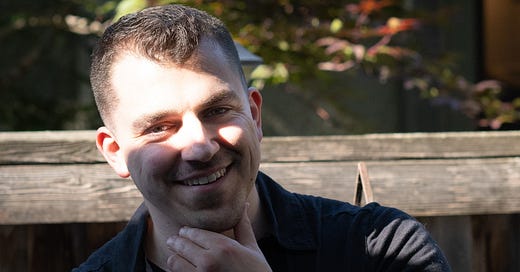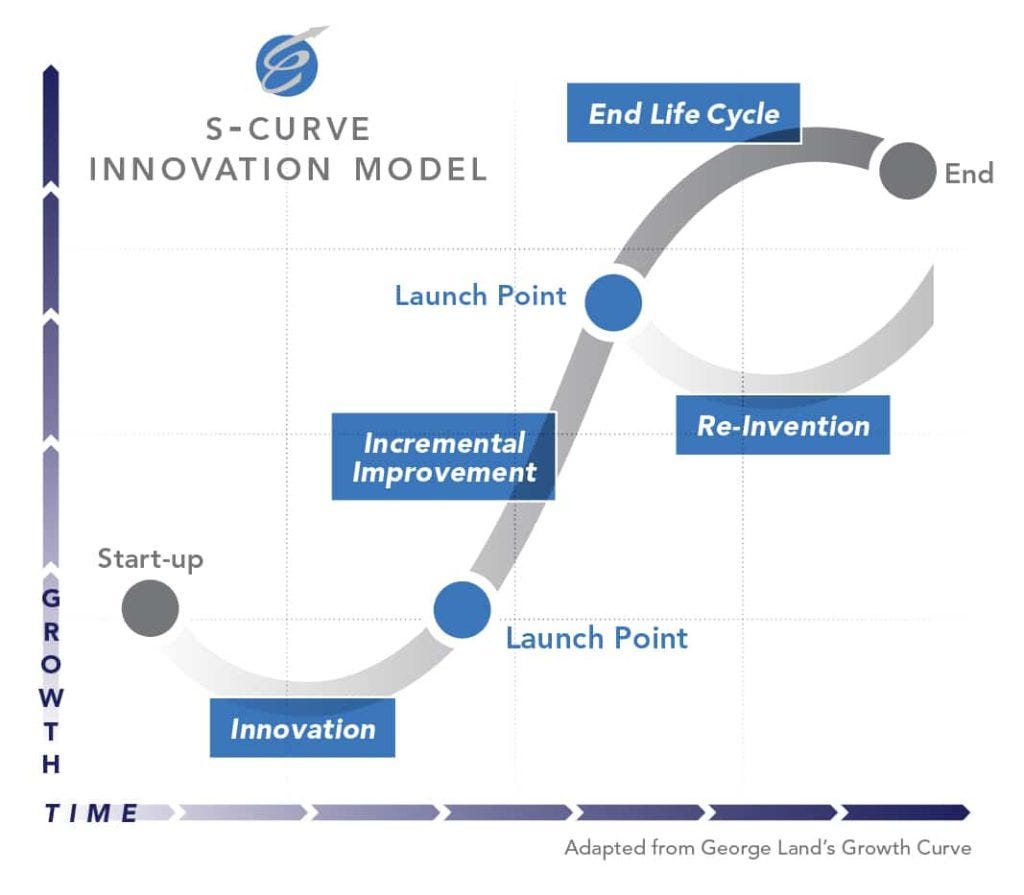“Inspiration is what comes when you’re at your desk. You don’t wait to become inspired, then go to your desk.” — Amor Towles
"Don’t wait around for inspiration. Inspiration is for amateurs; the rest of us just show up and get to work. If you wait around for the clouds to part and a bolt of lightning to strike you in the brain, you are not going to do an awful lot of work. All the best ideas come out of the process; they come out of the work itself.” — Chuck Close (Thank you for sharing this one with me, Beth!)
They both sound a lot like last week’s quote, right? I sense a common theme…
Worth Listening To
A podcast I discovered this week was the How I Write podcast, hosted by David Perell, founder of “Write of Passage” — an online program for aspiring online writers. I especially loved this episode with Sahil Bloom:
Finding your 15th-century Florence (or creating it)
Forcing constraints to improve productivity
Writing down ideas and sharing them
World sees outputs, not the work behind the scenes, the inputs
What is an epiphany moment?
For me personally, it’s recognizing common threads in very different ideas. For example, after listening to this episode, and beginning to write this piece, I realized this is often why I repeatedly listen, watch, and read the same content over and over again. I always miss things the first few times. But after taking in new content, I go back and have a fresh perspective.
Other Learning This Week:
David Perell’s How I Write Podcast — Amor Towles, “The Secret to Telling a Great Story”
Ted Gioia’s The Honest Broker Newsletter — The State of Culture, 2024
Thought-provoking and a harbinger of awareness for online behavior
Goes well with this article from Ash Lamb’s newsletter — Social Media Was Killing My Soul, so I learned how to Tame it.
David Senra’s Founders Podcast — Kobe Bryant (Mamba Mentality)
Conversations with a Personal Trainer
Inspiration does truly come from doing the work. In this case it was through conversing during a Boot Camp class with the members. Several weeks ago, one of the members had given a suggestion for a workout idea. That idea was chorused by several others in the group and I ran with it.
The workout was brilliant. One of the most fun group workouts I’ve written. That one conversation and subsequent workout cascaded into a new template of workouts for the Boot Camp classes — the most significant change I’ve made to them in seven years!
It’s never a bad thing to get input from others. It may change the way you think.
Playing Our Own Infinite Game
We tend to enjoy the things we’re good at (unless you’re Jon Snow). But, ironically, in an age where information is abundant and everyone’s an expert, being healthy is incredibly difficult for most people. Too many diets, too many influencers, too few well-equipped toolkits. Therefore, most people give up before they really begin. Why? Because they hate it! Because there is too much input, too much noise. My hope is that this newsletter has and will continue to become a signal to help many of you cut through the ceaseless barrage of noise.
A powerful concept I learned from listening to Sahil Bloom and David Perell was Ed Sheeran’s view on the creative process, equating it to a dirty water tap.
“You view it as a dirty tap. When you switch the dirty tap on it’s gonna flow shit water out for a substantial amount of time. And then you’ll get clean water. You’re going to write shit songs at the beginning. You are. Mine were terrible. The more you write, the more you start to flow clean water.”
Endeavoring to be healthy is no different than learning to write or learn any new skill, for that matter. The first few weeks are going to be rough. Your neuromuscular strength — your mind’s ability to contract a muscle — is likely very weak; you’re attempting to break old, bad habits and replace them with new, good habits; you’re likely eating foods that don’t taste as good as what you’re used to. It’s pure shit.
To make it even more difficult, progress is incredibly slow at first. And you’re sore. Always sore. In 1973, George Land published his book, Grow or Die: The Unifying Principle of Transformation.” He invented a concept called Transformation Theory, which is represented in the picture below and depicts an S-Curve.
The key principle in Land’s book is when we begin a new endeavor, progress is slow at first as we must develop a core competency for the task we are learning. As we estabish that competency, we launch into a period of rapid growth! Over time, that growth will slow and eventually we’ll reach a plateau. Where it gets extremely difficult is, once we reach that plateau, we often need to reinvent ourselves or we perish.
Transformation Theory is often used to describe the rise and fall of new technologies (like Blackberry, for example), or conversely, companies that continue to reinvent themselves like Nvidia and Apple. One current example is Google. With the rise of AI, they are stuck in a very difficult situation where they must decide whether to implode their search business (which generated a staggering $175 Billion — 57% of their total revenue — in 2023) to keep up with companies like OpenAI and Microsoft.
Our own health journeys bear striking similarities. After a while of being sore, our workouts begin to get easier. We begin to enjoy (or at least tolerate) healthier foods. It starts to get better. We establish a core competency. Then the clean water begins to flow and we enter a period of rapid growth. You learn how to activate your core muscles, and suddenly, that lower back pain you were experiencing a few weeks ago is gone; you learn how to properly use your shoulder blades and your shoulder pain is gone; you build balanced strength in your chest and upper back and maybe your neck pain is gone too!
Eventually, as your strength grows and your body’s composition changes you will begin to plateau. We can only build so much muscle and lose so much fat. Fortunately, we don’t always have to reinvent ourselves or face destruction from nawing competitors. After all, the Infinite Game concept stipulates that the only competition is with oneself, and the only way to lose is to stop playing. But what if we want to?
I used to want to lift as much weight as I possibly could. I got really good at it. My deadlift was 525 pounds, my bench was 300 pounds, and I could hold 100 pound dumbbells while doing bulgarian split squats (I don’t squat heavy weights because of my scoliosis). Sounds cool, right? But there’s always tradeoffs. I got hurt a lot. Primarily my lower back and my shoulders. I loved it and I miss it. But at a certain age, the body doesn’t heal as fast as it used to.
As my priorities shifted, I had to reinvent my approach to weightlifting, and exercise as a whole. If you’ve been reading each week, you’ll know I recently embarked on a new journey of “doing what sucks.” It’s fucking hard. It’s really difficult to stop doing what you’re good at, and start doing what you’re bad at. But, to no surprise, the more aerobically fit I get, the more I enjoy doing it. I’m beginning my core competency all over again and getting the shit water to flow out so I can get to the clean water.
Many of you have told me you’ve begun your own “do what sucks” journey too. I absolutely love it. Keep it up and you will get that clean water to flow. And perhaps this visual from Ash Lamb’s wonderful Visual Growth Newsletter will help you as it has helped me these past few weeks.
My closing question to you is, what’s something you’ve always wanted to do, or to learn? What’s stopped you in the past? Maybe it’s your health? Maybe it’s being able to run a mile, or a 5K? Maybe you want to start your own newsletter? Start today and get that shit water out.






